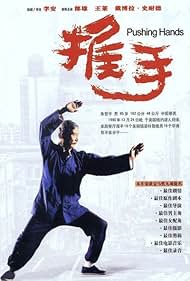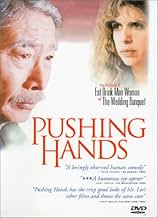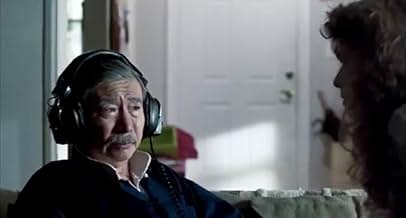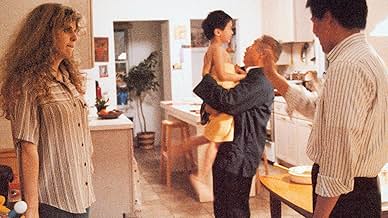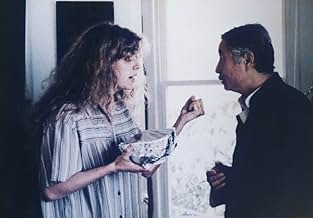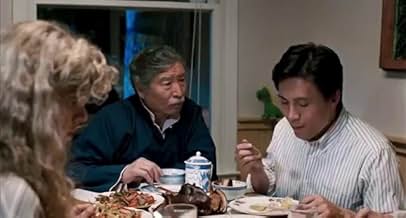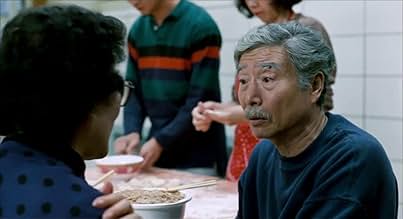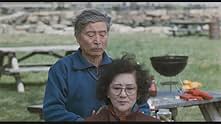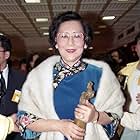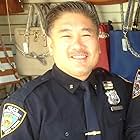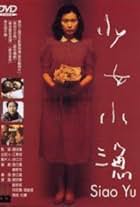IMDb RATING
7.2/10
5.1K
YOUR RATING
All the while, Master Chu tries to find his place in the foreign American world.All the while, Master Chu tries to find his place in the foreign American world.All the while, Master Chu tries to find his place in the foreign American world.
- Awards
- 6 wins & 7 nominations total
Bozhao Wang
- Alex Chu
- (as Ye-tong Wang)
- Director
- Writers
- All cast & crew
- Production, box office & more at IMDbPro
Featured reviews
Sihung Lung, the actor who played Master Chu, the aging tai chi master, gave a very convincing and sincere performance in this film. It was no wonder that he won the Golden Horse (Taiwan's equivalent for the Oscars) for Best Actor in this film. His performance was extremely touching, as tears jerked into my eyes as I see an aging and traditional Chinese father trying to get along with his westernized family while also trying to adjust to life in a new place and culture. The film encourages people, especially new immigrants, to emphasize and put themselves in their parents' shoes. Try to understand how difficult it is for them to come and settle in a new place and try not to push them away. Be patient with them, take a step back and everything may be better.
The movie title, "Pushing Hands", is very appropriate, as this is the term for an exercise in tai chi in which a person achieves balance by giving up balance. In this non-aggressive exercise between 2 people, a person offers no resistance at all to the pressure or push that the other person is exerting and keeps borrowing this strength until they feel they have fused into one and thus have achieved harmony. This was what Master Chu did. Although his daughter-in-law kept misunderstanding him, causing much discontent and eventually got his son to try to sent him away, he offered no resentment or a temper tantrum. He simply walked away gracefully. This action caused his son to appreciate him and remember why he got his father to live together in the first place in a tear jerking scene and finally they worked out a solution. They decided to give each other space by living separately instead of pushing each other away. In the end everyone was much happier, as even the daughter-in-law learned to accept the father, symbolized by her decorating the guest room for him and asking the question if he would ever visit. The father achieved the balance that he seek in Tai-Chi.
Ang Li is simply amazing and sensational. He did what he could with the limited budget and created a very warm and tear jerking film. Although this film was not the highest quality (the version I saw was very unclear and skips sometimes) and it could feel slow at times, especially the beginning sequence, the film was a great work in directing. The film picked up its pace after the slow beginning without any big fighting scenes or explosions and never felt boring afterwards. Also, from the beginning sequence, where he was able to show the dissension and gap between the daughter-in-law and the father by using just different scenes and visuals, to scenes throughout the film where he used lighting and different camera angles to show the internal pain and sadness that the father experience, it was, simply put, a great piece of art considering the budget. It showcased the talent of Li and gave the audience a glimpse of the man who would bring us the memorable Couching Tiger, Hidden Dragon.
The movie title, "Pushing Hands", is very appropriate, as this is the term for an exercise in tai chi in which a person achieves balance by giving up balance. In this non-aggressive exercise between 2 people, a person offers no resistance at all to the pressure or push that the other person is exerting and keeps borrowing this strength until they feel they have fused into one and thus have achieved harmony. This was what Master Chu did. Although his daughter-in-law kept misunderstanding him, causing much discontent and eventually got his son to try to sent him away, he offered no resentment or a temper tantrum. He simply walked away gracefully. This action caused his son to appreciate him and remember why he got his father to live together in the first place in a tear jerking scene and finally they worked out a solution. They decided to give each other space by living separately instead of pushing each other away. In the end everyone was much happier, as even the daughter-in-law learned to accept the father, symbolized by her decorating the guest room for him and asking the question if he would ever visit. The father achieved the balance that he seek in Tai-Chi.
Ang Li is simply amazing and sensational. He did what he could with the limited budget and created a very warm and tear jerking film. Although this film was not the highest quality (the version I saw was very unclear and skips sometimes) and it could feel slow at times, especially the beginning sequence, the film was a great work in directing. The film picked up its pace after the slow beginning without any big fighting scenes or explosions and never felt boring afterwards. Also, from the beginning sequence, where he was able to show the dissension and gap between the daughter-in-law and the father by using just different scenes and visuals, to scenes throughout the film where he used lighting and different camera angles to show the internal pain and sadness that the father experience, it was, simply put, a great piece of art considering the budget. It showcased the talent of Li and gave the audience a glimpse of the man who would bring us the memorable Couching Tiger, Hidden Dragon.
Ang Lee's first feature film, compared to "Eat Drink Man Woman," is a bit too neat and plain, but it still possesses the characteristic traits of Lee's later films - quiet and plain, yet captivating. It's truly miraculous that if this son were placed in another director's film, he would undoubtedly be detested, yet under Lee's direction, he evokes a sense of weakness without crossing into detestable territory. "The sun is shining, and I just want to stand here for a while. After all, no one is waiting for me. I'll forget about it after standing here for a while." This reminds me of my grandmother, who moved from her hometown to the city and struggled to adapt. Two weeks later, she insisted on going back. During most of the daytime, she would just sit on the balcony, soaking up the sun. I wonder what she was thinking at that time. Initially, I thought it was about cultural barriers, but later I realized it was much sadder. Cultural barriers can be temporarily overlooked through the efforts of both sides, but time and aging are forces that cannot be resisted.
Tuei Sho(Pushing Hands) is Ang Lee's first film after graduation, and the first episode of his "Triad of Father." In spite of its status as an early work, it manifests subtlety, elegance and articulation in narration style constantly seen in his latter works. Everyone, whether seen this film or not, can tell that it's about the bondage and gap of affection, relation and interaction within family, but it's more than that. It also tells about culture, not only the apparent differentiation, but the shift within a man's life, the time and the whole modern history of China. If you understand Chinese(language, culture and history), it is delicately overwhelming. If not, it's still amiable and a bit exotic. Tuei Sho is so worth viewing and contemplating again and again.
The adage of "Great things come in small packages" aptly applies to PUSHING HANDS/TUI SHOU. The film deftly tells its story with charm, humor and grace. A son's elderly father is the newest part of the family, and troubles therein lie. Essentially, it's a story of one family, yet could easily fit into many households. So many topics are breached, under the gentle, loving eye of the director (Ang Lee). The leads, the venerable Sihung Lung, Deb Snyder and Bo Z. Wang, do a credible job bringing this story to life. Recommended.
Love the natural performances of the two elders in this film (Sihung Lung and Wang Lai), and at its best, it touches on the real struggles of getting older in ways that tug the heartstrings. I was less impressed by the character and performance of the daughter-in-law, and the culture clash aspects of the story seemed a little clunky. There was a fair bit of melodrama here, some of which seemed sloppy, and some of which was pretty humorous (the old man channeling his powers and not being moveable by a crowd of guys in the kitchen comes to mind). It's uneven but engaging, and has gentle charm. Worth seeing.
Storyline
Did you know
- GoofsThe son, Alex, has physiognomy that is unmistakably that of someone Beijing, and the actor speaks with a Beijing accent, but the father, who demonstrates Taiwanese cultural practices, has the appearance of someone from farther south, such as near Shanghai. Regardless of whom the father might have married, the couple could not have produced a child with such Northern characteristics. This is a casting error more than a character error.
- ConnectionsFeatured in Century of Cinema: Naamsaang-neuiseung (1996)
- How long is Pushing Hands?Powered by Alexa
Details
Box office
- Budget
- $400,000 (estimated)
- Gross US & Canada
- $152,322
- Opening weekend US & Canada
- $9,567
- Jun 4, 1995
- Gross worldwide
- $152,322
Contribute to this page
Suggest an edit or add missing content

